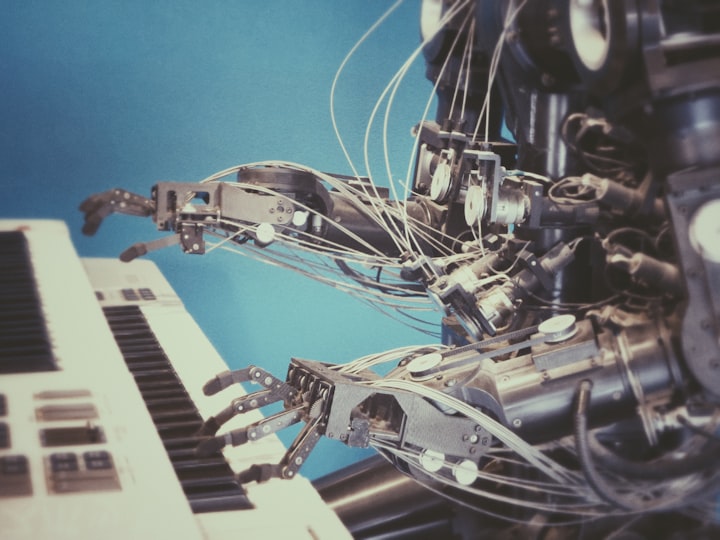
Artificial Intelligence (AI) is rapidly becoming an integral part of our daily lives, from Siri and Alexa in our homes to self-driving cars on the roads. As AI continues to advance, there is a growing concern about its ethical implications and the need for regulation.
The increasing sophistication of AI has raised a number of ethical questions, such as who is responsible for the actions of autonomous systems, and how can we ensure that AI is used for the benefit of society rather than causing harm. These questions are particularly important as AI is increasingly being used in decision-making processes that affect our lives, from healthcare to finance to criminal justice.
One of the key challenges in addressing the ethics of AI is that it is still an emerging field, with few established norms or regulations. There is also a lack of agreement on what constitutes ethical AI, with different stakeholders having different perspectives on what is acceptable.
In order to ensure that AI is used in an ethical and responsible manner, there is a growing need for organizations to develop ethical frameworks and guidelines. This includes considering the impact of AI on society and ensuring that AI systems are transparent and accountable.
Another important aspect of the rise of AI ethics is the need for greater public engagement and education on the topic. As AI becomes increasingly integrated into our lives, it is important that the public is informed and involved in discussions about its development and use.
Despite the challenges, the rise of AI ethics is a positive development, as it represents a recognition of the need to ensure that AI is used in a responsible and ethical manner. By taking a proactive approach to AI ethics, we can ensure that AI is developed and used in a way that benefits society and minimizes the risk of harm.
The rise of artificial intelligence (AI) has brought with it a number of ethical challenges, as society struggles to keep pace with this rapidly evolving technology. From issues of privacy and security, to the impact of AI on employment and the economy, the questions surrounding the ethical use of AI are complex and multifaceted.
One of the biggest challenges in AI ethics is ensuring that the technology is used in a responsible and transparent manner. This requires a deep understanding of the potential risks and unintended consequences of AI, as well as a commitment to ensuring that the technology is developed and deployed in a way that benefits all members of society.
Another key aspect of AI ethics is ensuring that the technology is inclusive and accessible to all. This means taking steps to ensure that the algorithms and decision-making processes used by AI systems are fair, transparent, and free from bias. It also means working to ensure that the benefits of AI are shared equitably, so that everyone has the opportunity to participate in and benefit from this rapidly evolving technology.
At its core, the rise of AI ethics is about creating a future in which technology is used to enhance human life, rather than replace it. By working together to develop and promote ethical standards for AI, we can help to ensure that this technology is used in a way that benefits all members of society and helps us to build a better future for everyone.
The rise of AI has also brought with it a new set of ethical dilemmas, particularly when it comes to the development and deployment of autonomous systems. As these systems become more advanced and integrated into our lives, it is becoming increasingly important to consider the ethical implications of their use.
For example, when it comes to autonomous weapons, there is a growing concern about the potential for these systems to be used to conduct warfare without proper oversight or control. There is also the potential for these systems to be used to carry out targeted assassinations or other unethical actions, and there are few legal or ethical frameworks in place to regulate their use.
Another major area of concern in AI ethics is privacy. With AI systems able to collect and analyze vast amounts of personal data, there is a growing risk that this information could be used for malicious purposes, such as targeted advertising or political manipulation. It is therefore critical that we work to establish clear guidelines for how this data can be collected, used, and stored, in order to protect the privacy of individuals and prevent the abuse of this technology.
Finally, there is the issue of accountability in AI. As AI systems become more advanced and autonomous, it is becoming increasingly difficult to determine who is responsible when things go wrong. This could be especially problematic in cases where AI systems are used to make decisions that have significant consequences, such as in the healthcare or criminal justice systems.
In conclusion, the rise of AI ethics is a critical issue that requires attention from organizations, policymakers, and the public. By working together to develop ethical frameworks and guidelines, and by fostering greater public engagement and education on the topic, we can ensure that AI is used in a responsible and ethical manner for the benefit of all.
Check how well the poetry was written by Open A.I (ChatGPT).
About the Creator
VectRast
Passionate Writer Bridging Creativity & Tech. Exploring Ideas, Telling Stories, and Inspiring Discovery.






Comments
There are no comments for this story
Be the first to respond and start the conversation.